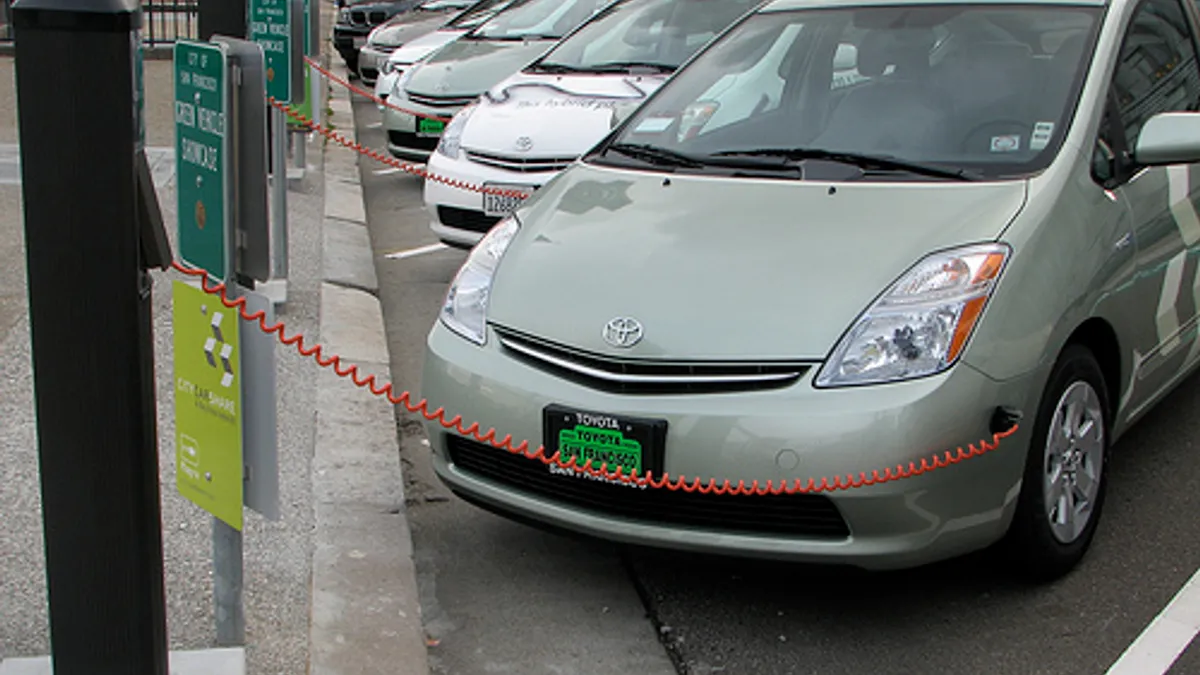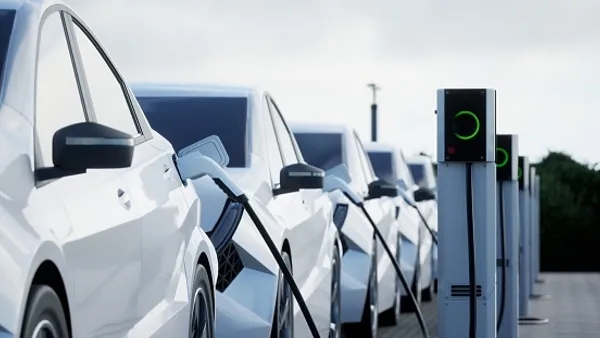Dive Brief:
- The Iowa Utilities Board (IUB) issued a proposed rule on Wednesday that would set guidelines for electric vehicle (EV) charging at public facilities, with the aim of removing the stations from the definition of "public utility" under state law.
- Regulators have opened a 30-day comment period on the rule, to be followed by a 45-day reply period. The proposal follows an October 2018 workshop where regulators heard comment from Tesla, ChargePoint, Greenlots, Interstate Power and Light, MidAmerican Energy, the Sierra Club and others.
- The EV market in Iowa remains under-developed, and regulators made a point to note that as it grows "other state agencies may also be required to address issues falling within the scope of their authorities."
Dive Insight:
The IUB's proposed rule is only three paragraphs, but regulators say they understand it won't be that simple.
"As EV charging stations are developed in Iowa, other state agencies may also be required to address issues falling within the scope of their authorities," the IUB wrote in its order. "As the legislature and executive branch agencies continue their review, statutes may be enacted and rules may be adopted that implicate entities subject to IUB jurisdiction and, if necessary, tariff filings with the IUB may be required."
State agencies have been tasked with preparing a report for Iowa lawmakers by June 30, 2019, with an evaluation of EV charging infrastructure and recommendations.
Last week's proposal adds a new rule in Iowa Administrative Code chapter 199-20, "Service Supplied by Electric Utilities," and specifies that electricity sold at a commercial or public station for the purpose of EV charging "constitutes neither the furnishing of electricity to the public nor the resale of electric service."
The rule also states that if the EV station's electricity is obtained from a rate-regulated public utility, "the terms and conditions of the service to the electric vehicle charging station shall be governed by and subject to the utility’s filed tariff."
"Providing EV charging from a commercial charging station involves much more than simply selling electricity. In some cases the provision of electricity is simply an ancillary service," the board said.
Before discussing the proposed rule, the IUB's order first addressed a claim by the Office of Consumer Advocate (OCA) that the board "lacks statutory authority to regulate third party operators of electric vehicle charging stations." OCA had called on the board to terminate the ruling.
Regulators said that while there may be situations in which an EV station does not constitute a "public utility," the board said it was "unwilling to disregard its statutory obligation to regulate public utilities under the conclusory assertion that all EV charging stations are not public utilities."














